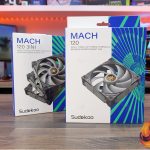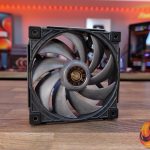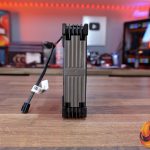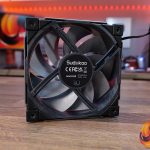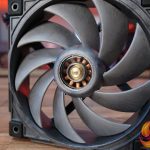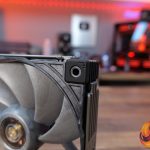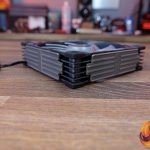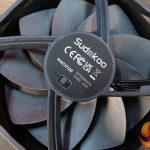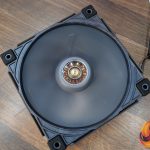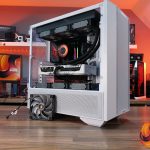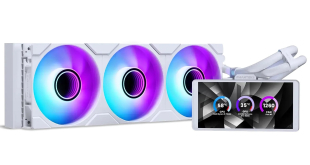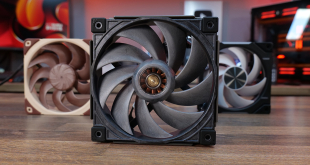
Today we’re taking a look at the Sudokoo Mach 120, a new fan aiming to challenge the Phanteks D30 and Noctua A12x25 G2, two of the top 120mm models on the market. We’ll be testing airflow, noise, and thermal performance inside a controlled case setup to see how those claims hold up in real-world conditions. So, is the Mach 120 a genuine contender or just another marketing claim? Let’s find out.
Timestamps:
00:00 Start
00:44 Technical details / pricing / warranty
01:33 A close up look / Bearings
02:27 The appearance
03:17 Vibration Damping / Customisation
04:08 Wiring Connections
04:36 Accessories
05:10 What to compare against?
06:11 Test System
06:56 Smoke Visualisations
08:20 Testing Methodology
09:40 Noise Performance
11:11 Thermal Performance
14:21 Real World Thermal Performance
16:57 James' Closing Thoughts
Features:
- 30mm thick with blade and frame constructed using liquid crystal polymer (LCP) + 40 % glass fibre reinforcement to resist warping and improve rigidity under high speed.
- Mach 120 uses a high-performance 3-phase, 10-pole, 12-slot FOC closed-loop motor, allowing a PWM speed range of ~500–3000 RPM.
- A Custom 3D-printable side panel file is included for visual customisation of fan side frames. And Mach 120 comes with a 6-year warranty.
Specifications:
- Dimensions: 120 × 120 × 30 mm
- Weight: 230 g
- Speed (PWM): 500 – 3000 RPM ±10 %
- Idle / 0 RPM Threshold: ~ below 5 % PWM
- Airflow: 108 CFM
- Static Pressure: 7.31 mmAq (≈ mm H₂O)
- Noise: ≤ 39.9 dB(A)
- Bearing type: Hybrid Hydraulic Bearing, by Porite (Japan)
- Motor type: 3-phase, 10-pole, 12-slot FOC closed-loop motor
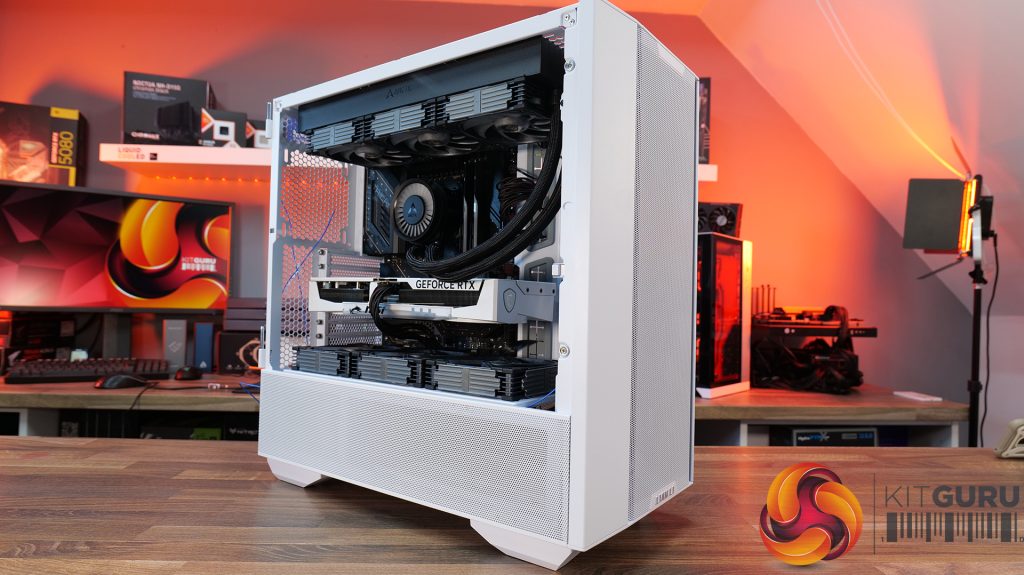
Test System Specifications:
- CPU: AMD Ryzen 9 9950X3D
- Motherboard: ASRock X870E Taichi
- Graphics card: MSI RTX 5080 Gaming Trio White
- RAM: 64GB (2 x 32GB Modules) G.SKILL Trident Z5 RGB DDR5-6000
- Storage: 1TB Corsair MP600 Elite PCIE Gen4 M.2 SSD
- Power Supply: Seasonic Prime TX-1600 Noctua Edition
- CPU Cooler: Arctic Liquid Freezer III 360
- Chassis: Lian Li Lancool III
- Operating System: Windows 11 24H2
Testing Methodology
Our testing focuses on the thermal performance of each fan under three conditions: 100% PWM, 1400 RPM, and 40 dBA noise-normalised operation. All tests are conducted with a manual CPU overclock, locking the all-core frequency and VCORE to ensure consistent load across runs.
Baseline Measurement:
- Ambient temperature is recorded.
- The system is left idle for 10 minutes.
- CPU and GPU temperatures are logged using HWINFO, while case temperatures are monitored with thermocouples placed at three positions:
T1: Behind the front intake fan
T2: In front of the rear exhaust
T3: Above the AIO exhaust
Load Testing:
A combined CPU/GPU stress test is run for 30 minutes using 3DMark Speed Way stress test and Cinebench simultaneously.
Temperature charts show the average CPU/GPU delta over the final 10 minutes of the test, along with the thermocouple readings at the end of the session.
Noise Testing:
Noise levels are measured with a decibel meter placed 30 cm from the front of the system.
Airflow Visualisation:
Smoke tests are filmed with all fans running at 1400 RPM to illustrate airflow patterns across the case and cooling components.
This methodology ensures a consistent, real-world comparison of each fan’s thermal efficiency, noise performance, and airflow characteristics.
Test Results:
System Noise: 100% PWM
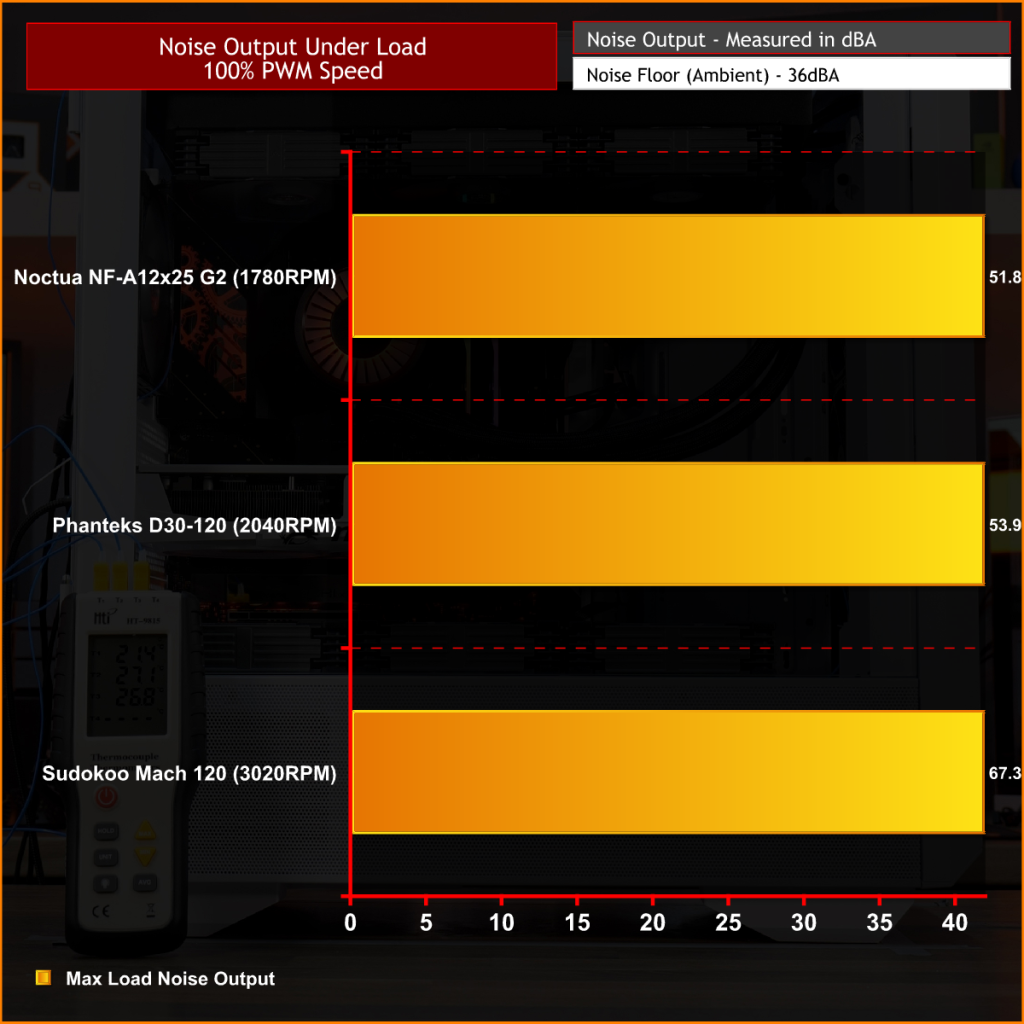
1400RPM Normalised
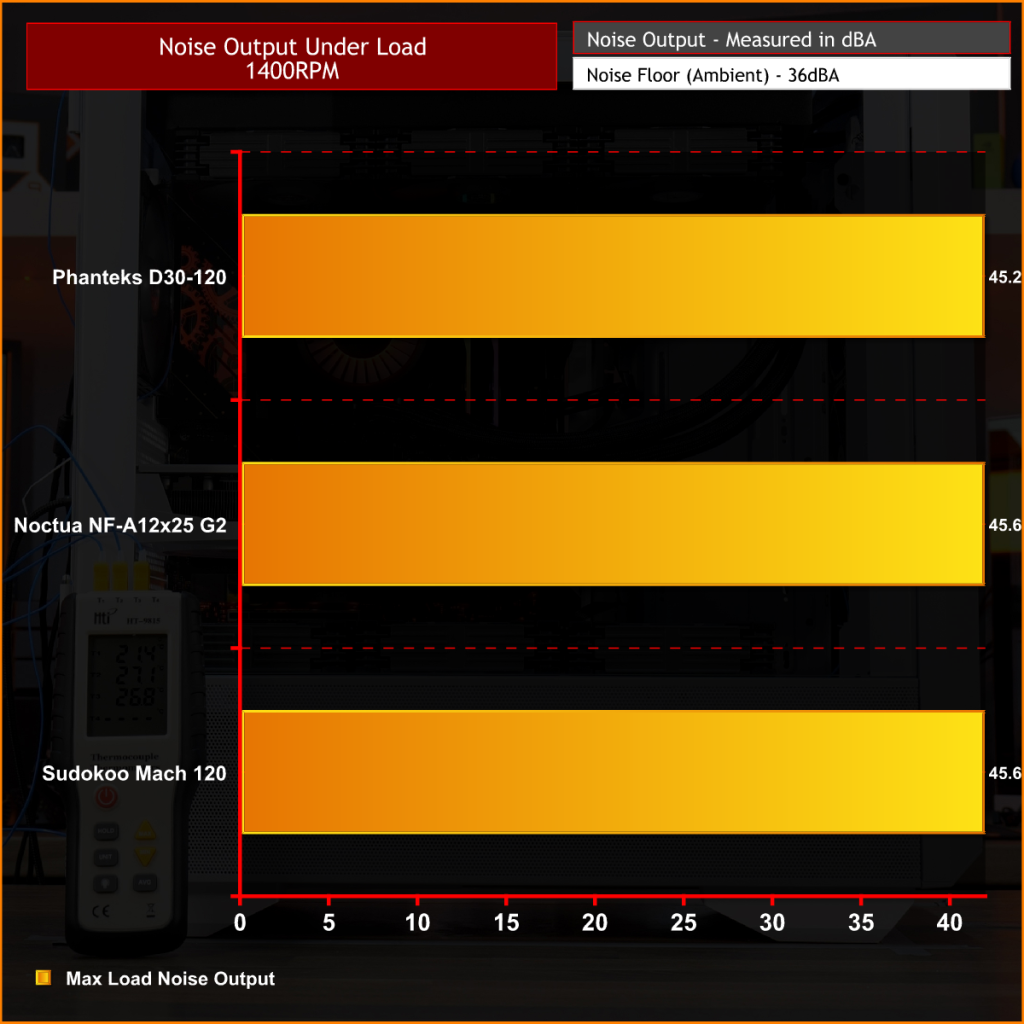
Case Temperatures: 100% PWM
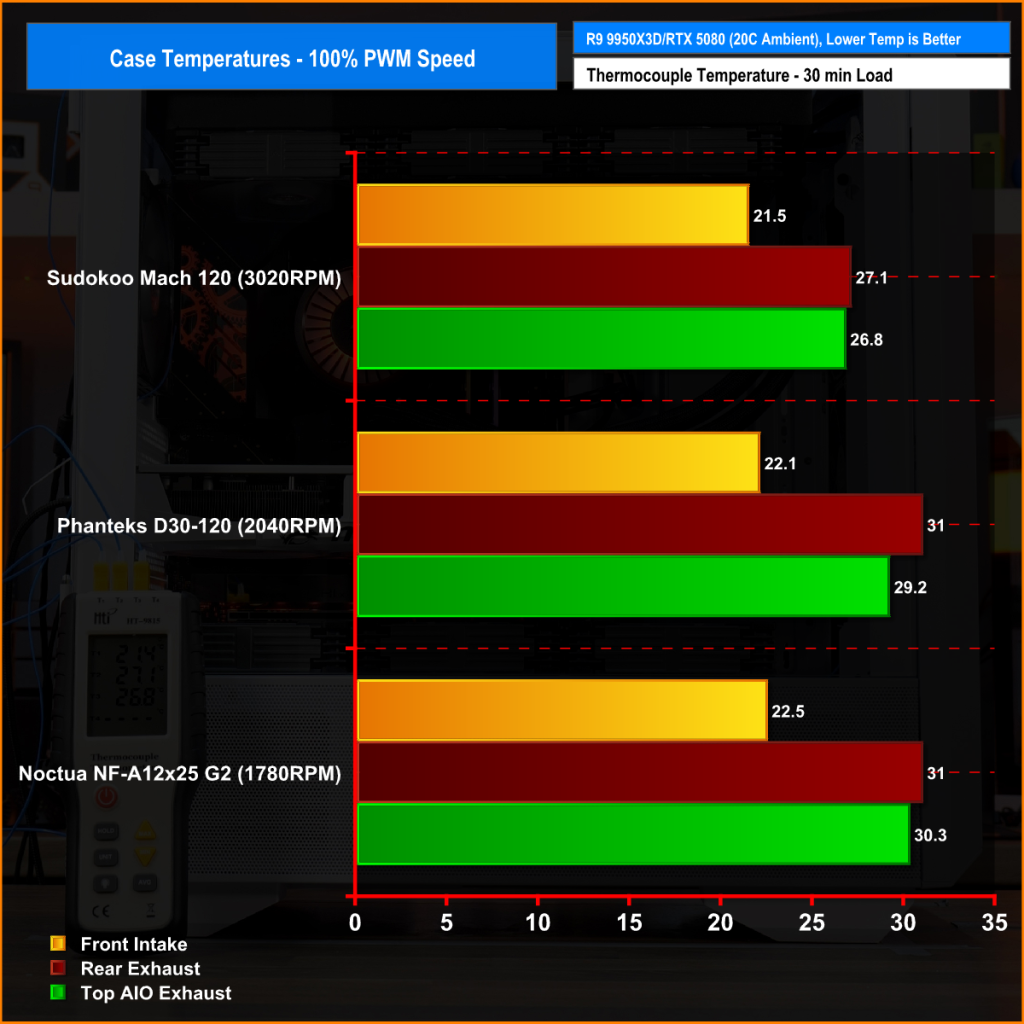
1400RPM Normalised
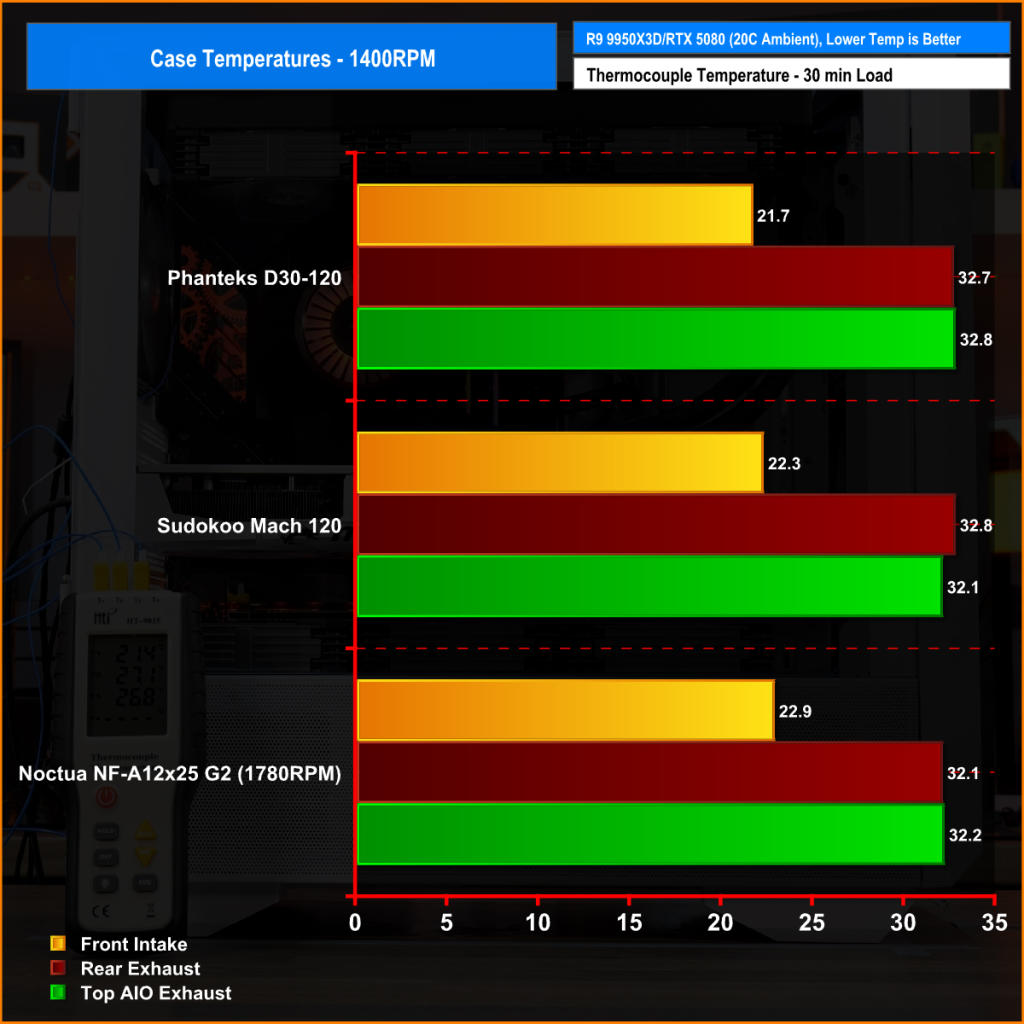
40dBA Noise Normalised
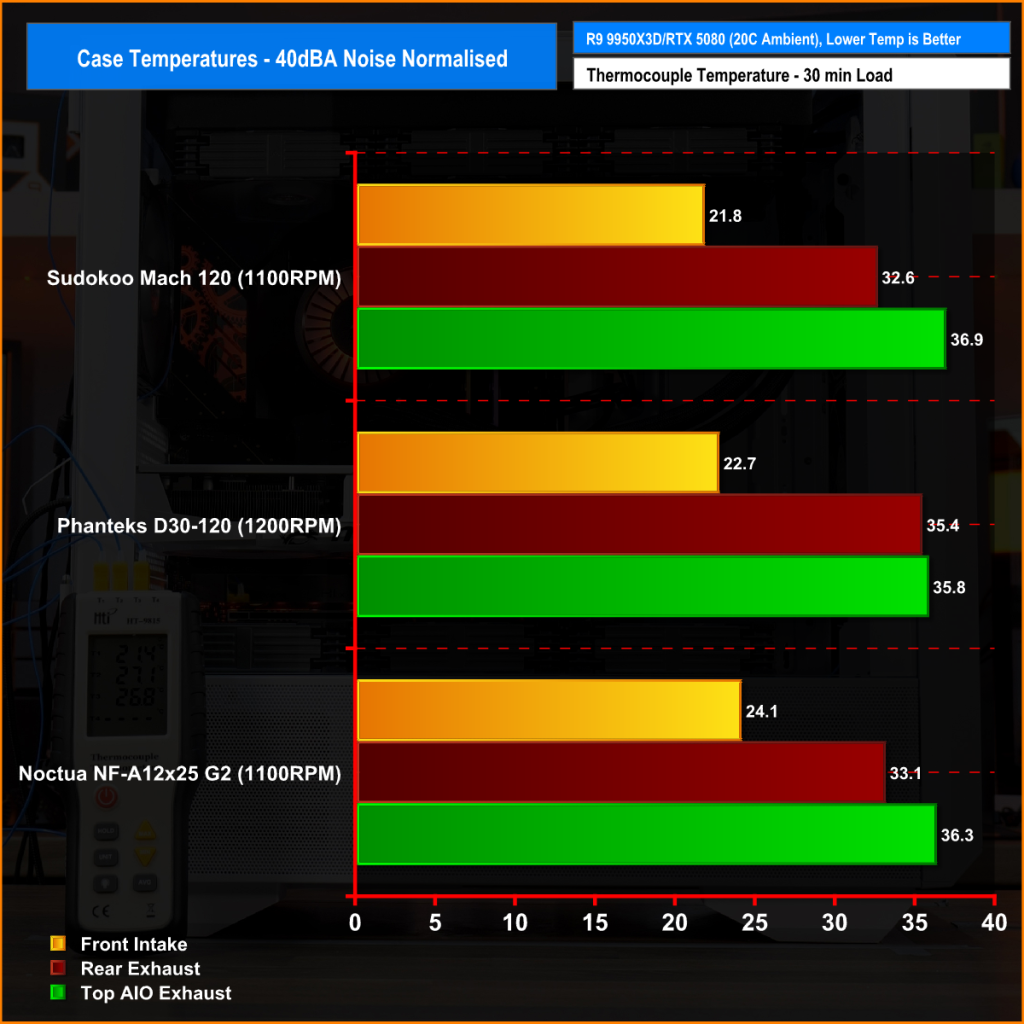
CPU & GPU Temperature: 100% PWM
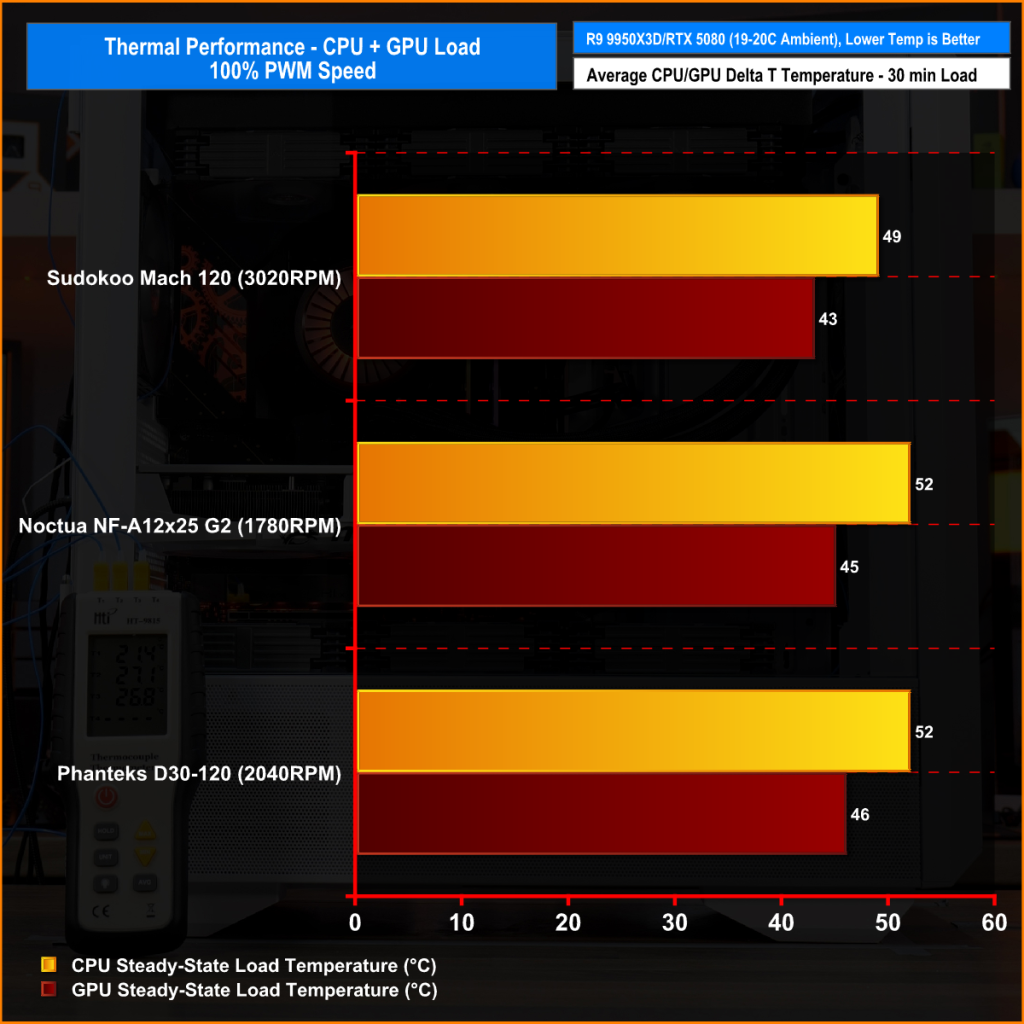
1400RPM Normalised
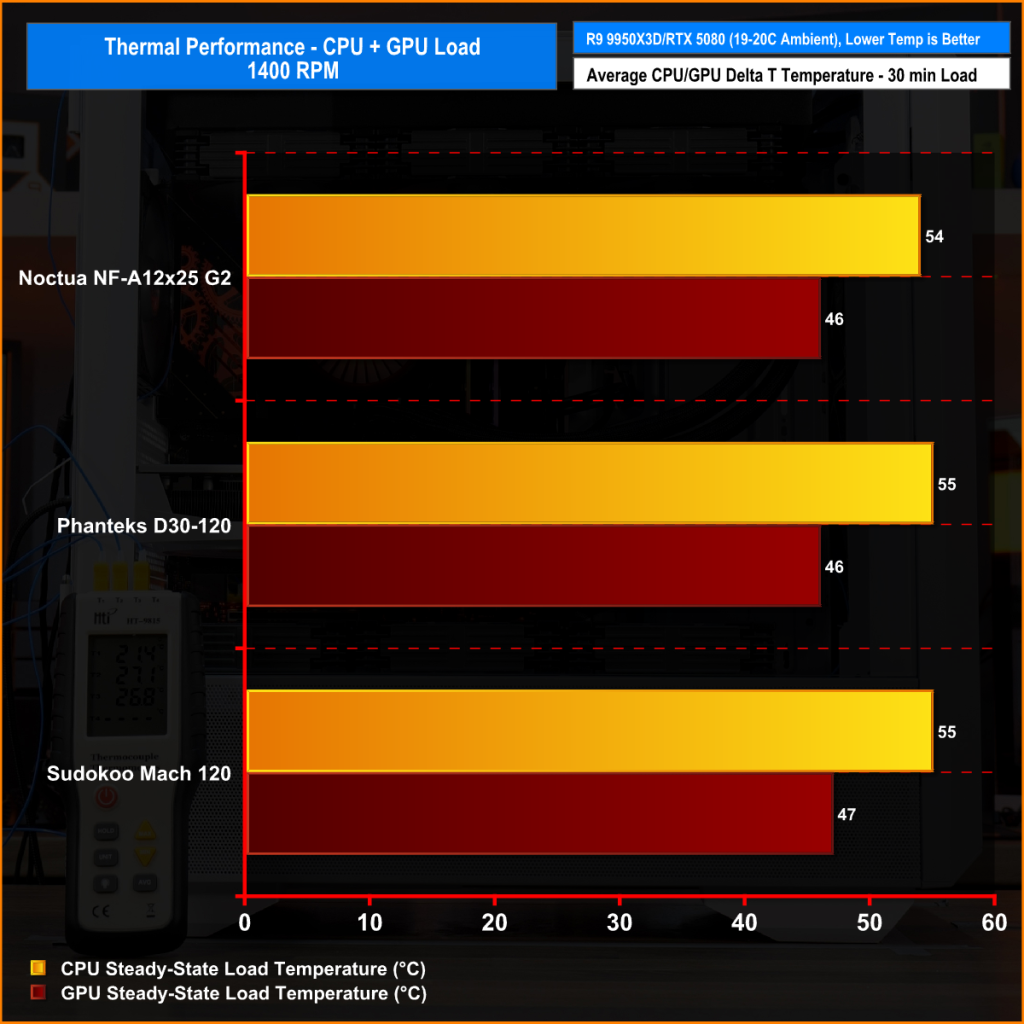
40dBA Noise Normalised
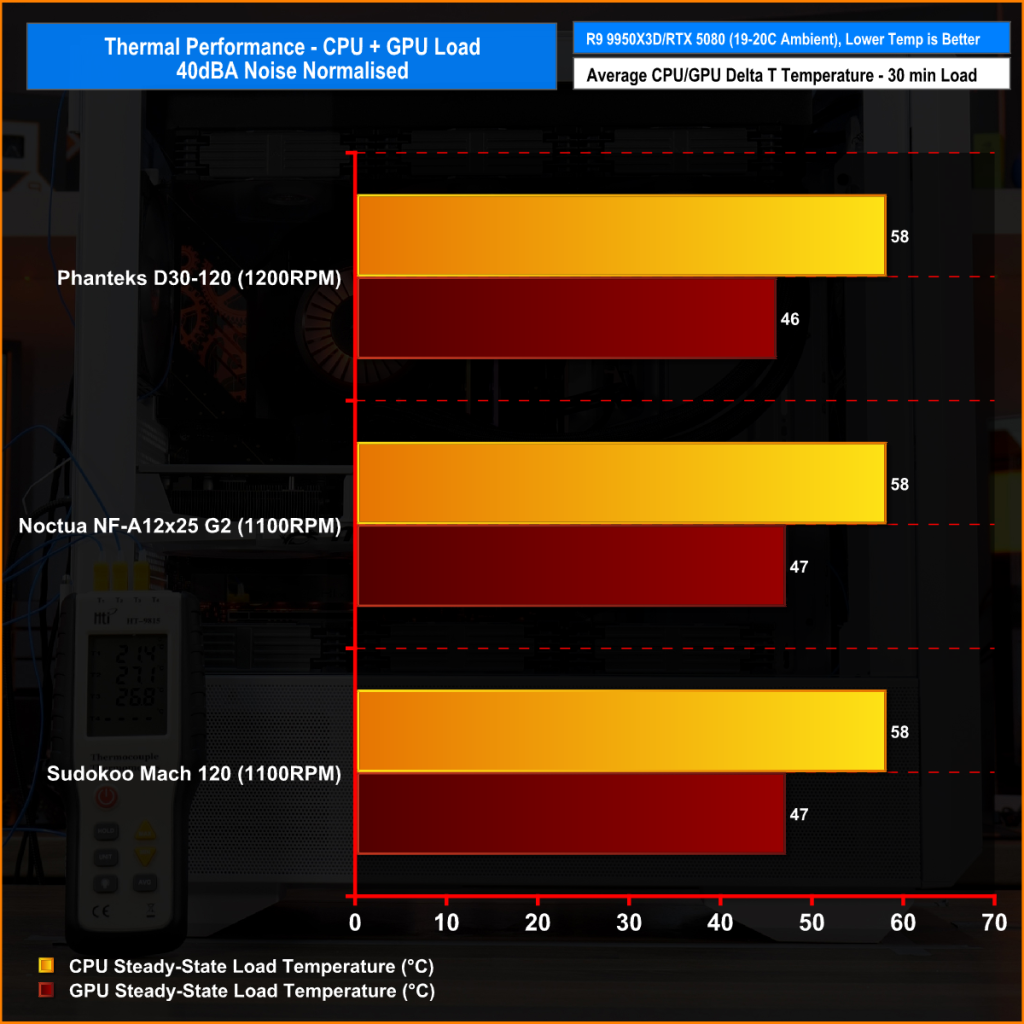
We found the Sudokoo Mach 120 listed on Amazon HERE. A single unit costs £25.99 while a triple-pack is £69.99.
Pros:
- High speed for maximum cooling potential if needed.
- Still gives great performance when the RPM is reduced to acceptable noise levels.
- Subtle but also can be customised for a personalised look.
Cons:
- Very loud at max speed.
- Lacking RGB lighting.
- Need to remove side panels to keep the standard 120mm fan spacing.
KitGuru says: Sudokoo made some pretty big claims with the Mach 120, but the company has surprised us all with the performance of this new 120mm fan. Even when noise and speed are normalised, they can keep up with established brands such as Phanteks and Noctua!
 KitGuru KitGuru.net – Tech News | Hardware News | Hardware Reviews | IOS | Mobile | Gaming | Graphics Cards
KitGuru KitGuru.net – Tech News | Hardware News | Hardware Reviews | IOS | Mobile | Gaming | Graphics Cards


